 They say this cat Luke Cage is a bad mutha…SHUT YOUR MOUTH! I’m talking ‘bout Power Man. I can dig it!
They say this cat Luke Cage is a bad mutha…SHUT YOUR MOUTH! I’m talking ‘bout Power Man. I can dig it!
I’m gonna keep it real for a moment–like me–you probably didn't know a damn thing about Luke Cage until Netflix dropped an entirely new series based after the titular superhero on September 30th. This isn't the first Marvel collaboration to hit the streaming network,
Daredevil and
Jessica Jones preceded Cage and were both well-received, and yet neither one appealed to me in the slightest. Despite my ignorance on the nearly 45 year-old character, there was something about
Luke Cage that peaked my interest, therefore I–along with everyone else it seems–spent a vast amount of time binge-watching the entire series this past week. The show isn't without it’s flaws–which I’ll discuss later–however, from its earliest moments, the show is immediately engrossing and entertaining. More importantly though,
Luke Cage features an ensemble of incredibly gifted African-American actors and actresses, along with narratives that address relevant, contemporary social, political and cultural issues which could leave audiences feeling uncomfortable–and that's a good thing. Having a superhero, in this case, a bulletproof black man, in light of the victims of police shootings and subsequently the Black Lives Matter movement isn't lost on audiences. Which is one reason why the show is garnering such praise and earning the dubious distinction of being "the most woke show on television".
Luke Cage wasn't the first black superhero, and he won’t be the last. In fact, prior to Cage’s creation in 1972, there were a few other well-known African-American superheroes that existed in the MCU which grew from the Civil Rights era, namely: Black Panther (1966), Falcon (1969), and John Stewart, The Green Lantern (1971). The rise of the widely popular Blaxploitation genre of the early seventies, primarily due to the film
Shaft (1971) served as the genesis for the newest African-American superhero, and thus Carl Lucas, also known as Luke Cage, and to a lesser extent, Power Man, was born. Despite being an incurably, seemingly indestructible force of nature–Cage, a crime- fighting, hero for hire–part Captain America, part Juggernaut, part Muhammad Ali–never really took off and whatever popularity he garnered in that time, was relatively short-lived. Although he experienced a small resurgence when he teamed up with another character, named Iron Fist–who has his own series coming to Netflix–during the height of the subsequent, martial arts craze that swept the nation, ultimately it wasn't enough to save Cage, and he vanished into relative obscurity. While on hiatus, Marvel continued to reconstruct his character, and in doing so, the MCU saw the rise of a number of other great African-American heroes including: Storm, of X-Men fame (1975), War Machine (1979), Bishop (1991), and Blade (1998). Nevertheless, seemingly forgotten heroes always have a way of being reborn, the lure of nostalgia is an undeniable power. Never has the time been more right for Luke Cage to re-emerge, and in doing so Netflix has positioned him to be the hero for the new millennium.

Netflix's
Luke Cage at its core is an origin story played out in a series of flashbacks during the first four episodes. The entire show is an African-American history lesson, paying homage to the genre that conceived the character and exploring many of the same themes: race, sexuality and masculinity, but in a more nuanced and diverse way, while escaping many of the negative stereotypes associated with the films of the past. While
Cage and
Shaft share many qualities: both feature African-American protagonists, both are set to bad-ass musical scores, there are some glaring differences. Namely, how the writers of the series address African-American machismo. Cage is no longer a stereotypical, jive-talking, rage-filled, punch your way out of trouble hero. Instead, he's more complex, garnering strength and respect through stoicism and charisma, portrayed perfectly by actor Mike Colter. He's gone from being a caricature, to being a fully flushed out character. We see a different kind of black community portrayed in the show also. Cage, is a reluctant hero, forced to defend and protect his community against his adversaries, who have differing values and modus operandi on ways to make their community better. Despite not being in the title role, the many women of
Cage are just as powerful and strong
–albeit not gifted with superpowers
–specifically, Simone Cook, who plays Detective Misty Knight, shines throughout the series. Likewise, no gritty, impecunious backdrops here, Cage's community, set in New York's, historic Harlem neighborhood is experiencing a modern day renaissance, due to the gentrification phenomenon. That's not to say many of the issues that plague African-American communities, such as: racial profiling, black anti-intellectualism, police brutality, mass incarceration, and a corrupt justice system, aren't there–they are, it's just that
Cage brings awareness of the issues to the forefront, yet without offering any solutions to the problems. Reality is, even a superhero, a man who's as physically and mentally gifted as Cage, can't save the day and fix complex and pressing issues alone.

Gone too are days of the original outfit: two gaudy, silver bracelets, complete with an upside-down tiara, a low-cut silky, yellow shirt with a butterfly collar, with matching boots, tight blue pants, and a big chained belt. "
Sweet Christmas!" Like every superhero, Cage's costume had to be updated to reflect a more contemporary look, complete with jeans, a simple t-shirt, and a sweatshirt. If you were hoping to see the archetypal getup, you're in luck because if you look closely in the fourth episode, entitled “
Step In The Arena”, Cage after a daring escape, dons the storied attire–albeit briefly. Upon catching a glimpse of himself in the makeshift garb, Cage exclaims, "I look like a damn fool", before quickly changing into his newer vogue. Not all heroes wear capes, some wear hoodies.
Despite its strong cast, led by Colter, Netflix's
Cage has two main problems–one that's increasingly frustrating over the entire series, and the other that may be purposeful in its intent. First off, the series struggles with pacing–it's an incredibly slow show. Each episode is an hour long, and at times you feel as if you've been watching it for days.
Cage has the luxury of retelling an origin story over thirteen episodes, while the MCU movie franchise has to do it in under an hour. Similarly, as strong as the show is from the onset, the story arcs, falter in the second half of the series, leaving audiences shaking their heads. However these things can be easily resolved, if and when it's renewed for a second season. The later, is one that has plagued the character since his earliest creation: his adversaries. Cage's villains have always been D-List at best, two-bit gangster types–merely mortals. Despite strong performances by Mahershala Ali who plays Cottonmouth, and Shades, played by Theo Rossi, even they know they're woefully outmatched against the superhero. A powerful and storied character such as Cage, has always been deserving of an equally powerful foe–and maybe that's the point–he already has some. While Iron Man and the Avengers are battling otherworldly threats to save humanity against aliens and demigods hell-bent on conquering and destroying our world, Cage battles more exigent, societal threats, like racism and gun violence which have been, and continue to remain, something our world needs saving from.
 They say this cat Luke Cage is a bad mutha…SHUT YOUR MOUTH! I’m talking ‘bout Power Man. I can dig it!
I’m gonna keep it real for a moment–like me–you probably didn't know a damn thing about Luke Cage until Netflix dropped an entirely new series based after the titular superhero on September 30th. This isn't the first Marvel collaboration to hit the streaming network, Daredevil and Jessica Jones preceded Cage and were both well-received, and yet neither one appealed to me in the slightest. Despite my ignorance on the nearly 45 year-old character, there was something about Luke Cage that peaked my interest, therefore I–along with everyone else it seems–spent a vast amount of time binge-watching the entire series this past week. The show isn't without it’s flaws–which I’ll discuss later–however, from its earliest moments, the show is immediately engrossing and entertaining. More importantly though, Luke Cage features an ensemble of incredibly gifted African-American actors and actresses, along with narratives that address relevant, contemporary social, political and cultural issues which could leave audiences feeling uncomfortable–and that's a good thing. Having a superhero, in this case, a bulletproof black man, in light of the victims of police shootings and subsequently the Black Lives Matter movement isn't lost on audiences. Which is one reason why the show is garnering such praise and earning the dubious distinction of being "the most woke show on television".
Luke Cage wasn't the first black superhero, and he won’t be the last. In fact, prior to Cage’s creation in 1972, there were a few other well-known African-American superheroes that existed in the MCU which grew from the Civil Rights era, namely: Black Panther (1966), Falcon (1969), and John Stewart, The Green Lantern (1971). The rise of the widely popular Blaxploitation genre of the early seventies, primarily due to the film Shaft (1971) served as the genesis for the newest African-American superhero, and thus Carl Lucas, also known as Luke Cage, and to a lesser extent, Power Man, was born. Despite being an incurably, seemingly indestructible force of nature–Cage, a crime- fighting, hero for hire–part Captain America, part Juggernaut, part Muhammad Ali–never really took off and whatever popularity he garnered in that time, was relatively short-lived. Although he experienced a small resurgence when he teamed up with another character, named Iron Fist–who has his own series coming to Netflix–during the height of the subsequent, martial arts craze that swept the nation, ultimately it wasn't enough to save Cage, and he vanished into relative obscurity. While on hiatus, Marvel continued to reconstruct his character, and in doing so, the MCU saw the rise of a number of other great African-American heroes including: Storm, of X-Men fame (1975), War Machine (1979), Bishop (1991), and Blade (1998). Nevertheless, seemingly forgotten heroes always have a way of being reborn, the lure of nostalgia is an undeniable power. Never has the time been more right for Luke Cage to re-emerge, and in doing so Netflix has positioned him to be the hero for the new millennium.
They say this cat Luke Cage is a bad mutha…SHUT YOUR MOUTH! I’m talking ‘bout Power Man. I can dig it!
I’m gonna keep it real for a moment–like me–you probably didn't know a damn thing about Luke Cage until Netflix dropped an entirely new series based after the titular superhero on September 30th. This isn't the first Marvel collaboration to hit the streaming network, Daredevil and Jessica Jones preceded Cage and were both well-received, and yet neither one appealed to me in the slightest. Despite my ignorance on the nearly 45 year-old character, there was something about Luke Cage that peaked my interest, therefore I–along with everyone else it seems–spent a vast amount of time binge-watching the entire series this past week. The show isn't without it’s flaws–which I’ll discuss later–however, from its earliest moments, the show is immediately engrossing and entertaining. More importantly though, Luke Cage features an ensemble of incredibly gifted African-American actors and actresses, along with narratives that address relevant, contemporary social, political and cultural issues which could leave audiences feeling uncomfortable–and that's a good thing. Having a superhero, in this case, a bulletproof black man, in light of the victims of police shootings and subsequently the Black Lives Matter movement isn't lost on audiences. Which is one reason why the show is garnering such praise and earning the dubious distinction of being "the most woke show on television".
Luke Cage wasn't the first black superhero, and he won’t be the last. In fact, prior to Cage’s creation in 1972, there were a few other well-known African-American superheroes that existed in the MCU which grew from the Civil Rights era, namely: Black Panther (1966), Falcon (1969), and John Stewart, The Green Lantern (1971). The rise of the widely popular Blaxploitation genre of the early seventies, primarily due to the film Shaft (1971) served as the genesis for the newest African-American superhero, and thus Carl Lucas, also known as Luke Cage, and to a lesser extent, Power Man, was born. Despite being an incurably, seemingly indestructible force of nature–Cage, a crime- fighting, hero for hire–part Captain America, part Juggernaut, part Muhammad Ali–never really took off and whatever popularity he garnered in that time, was relatively short-lived. Although he experienced a small resurgence when he teamed up with another character, named Iron Fist–who has his own series coming to Netflix–during the height of the subsequent, martial arts craze that swept the nation, ultimately it wasn't enough to save Cage, and he vanished into relative obscurity. While on hiatus, Marvel continued to reconstruct his character, and in doing so, the MCU saw the rise of a number of other great African-American heroes including: Storm, of X-Men fame (1975), War Machine (1979), Bishop (1991), and Blade (1998). Nevertheless, seemingly forgotten heroes always have a way of being reborn, the lure of nostalgia is an undeniable power. Never has the time been more right for Luke Cage to re-emerge, and in doing so Netflix has positioned him to be the hero for the new millennium.
 Netflix's Luke Cage at its core is an origin story played out in a series of flashbacks during the first four episodes. The entire show is an African-American history lesson, paying homage to the genre that conceived the character and exploring many of the same themes: race, sexuality and masculinity, but in a more nuanced and diverse way, while escaping many of the negative stereotypes associated with the films of the past. While Cage and Shaft share many qualities: both feature African-American protagonists, both are set to bad-ass musical scores, there are some glaring differences. Namely, how the writers of the series address African-American machismo. Cage is no longer a stereotypical, jive-talking, rage-filled, punch your way out of trouble hero. Instead, he's more complex, garnering strength and respect through stoicism and charisma, portrayed perfectly by actor Mike Colter. He's gone from being a caricature, to being a fully flushed out character. We see a different kind of black community portrayed in the show also. Cage, is a reluctant hero, forced to defend and protect his community against his adversaries, who have differing values and modus operandi on ways to make their community better. Despite not being in the title role, the many women of Cage are just as powerful and strong–albeit not gifted with superpowers–specifically, Simone Cook, who plays Detective Misty Knight, shines throughout the series. Likewise, no gritty, impecunious backdrops here, Cage's community, set in New York's, historic Harlem neighborhood is experiencing a modern day renaissance, due to the gentrification phenomenon. That's not to say many of the issues that plague African-American communities, such as: racial profiling, black anti-intellectualism, police brutality, mass incarceration, and a corrupt justice system, aren't there–they are, it's just that Cage brings awareness of the issues to the forefront, yet without offering any solutions to the problems. Reality is, even a superhero, a man who's as physically and mentally gifted as Cage, can't save the day and fix complex and pressing issues alone.
Netflix's Luke Cage at its core is an origin story played out in a series of flashbacks during the first four episodes. The entire show is an African-American history lesson, paying homage to the genre that conceived the character and exploring many of the same themes: race, sexuality and masculinity, but in a more nuanced and diverse way, while escaping many of the negative stereotypes associated with the films of the past. While Cage and Shaft share many qualities: both feature African-American protagonists, both are set to bad-ass musical scores, there are some glaring differences. Namely, how the writers of the series address African-American machismo. Cage is no longer a stereotypical, jive-talking, rage-filled, punch your way out of trouble hero. Instead, he's more complex, garnering strength and respect through stoicism and charisma, portrayed perfectly by actor Mike Colter. He's gone from being a caricature, to being a fully flushed out character. We see a different kind of black community portrayed in the show also. Cage, is a reluctant hero, forced to defend and protect his community against his adversaries, who have differing values and modus operandi on ways to make their community better. Despite not being in the title role, the many women of Cage are just as powerful and strong–albeit not gifted with superpowers–specifically, Simone Cook, who plays Detective Misty Knight, shines throughout the series. Likewise, no gritty, impecunious backdrops here, Cage's community, set in New York's, historic Harlem neighborhood is experiencing a modern day renaissance, due to the gentrification phenomenon. That's not to say many of the issues that plague African-American communities, such as: racial profiling, black anti-intellectualism, police brutality, mass incarceration, and a corrupt justice system, aren't there–they are, it's just that Cage brings awareness of the issues to the forefront, yet without offering any solutions to the problems. Reality is, even a superhero, a man who's as physically and mentally gifted as Cage, can't save the day and fix complex and pressing issues alone.
 Gone too are days of the original outfit: two gaudy, silver bracelets, complete with an upside-down tiara, a low-cut silky, yellow shirt with a butterfly collar, with matching boots, tight blue pants, and a big chained belt. "Sweet Christmas!" Like every superhero, Cage's costume had to be updated to reflect a more contemporary look, complete with jeans, a simple t-shirt, and a sweatshirt. If you were hoping to see the archetypal getup, you're in luck because if you look closely in the fourth episode, entitled “Step In The Arena”, Cage after a daring escape, dons the storied attire–albeit briefly. Upon catching a glimpse of himself in the makeshift garb, Cage exclaims, "I look like a damn fool", before quickly changing into his newer vogue. Not all heroes wear capes, some wear hoodies.
Despite its strong cast, led by Colter, Netflix's Cage has two main problems–one that's increasingly frustrating over the entire series, and the other that may be purposeful in its intent. First off, the series struggles with pacing–it's an incredibly slow show. Each episode is an hour long, and at times you feel as if you've been watching it for days. Cage has the luxury of retelling an origin story over thirteen episodes, while the MCU movie franchise has to do it in under an hour. Similarly, as strong as the show is from the onset, the story arcs, falter in the second half of the series, leaving audiences shaking their heads. However these things can be easily resolved, if and when it's renewed for a second season. The later, is one that has plagued the character since his earliest creation: his adversaries. Cage's villains have always been D-List at best, two-bit gangster types–merely mortals. Despite strong performances by Mahershala Ali who plays Cottonmouth, and Shades, played by Theo Rossi, even they know they're woefully outmatched against the superhero. A powerful and storied character such as Cage, has always been deserving of an equally powerful foe–and maybe that's the point–he already has some. While Iron Man and the Avengers are battling otherworldly threats to save humanity against aliens and demigods hell-bent on conquering and destroying our world, Cage battles more exigent, societal threats, like racism and gun violence which have been, and continue to remain, something our world needs saving from.
Gone too are days of the original outfit: two gaudy, silver bracelets, complete with an upside-down tiara, a low-cut silky, yellow shirt with a butterfly collar, with matching boots, tight blue pants, and a big chained belt. "Sweet Christmas!" Like every superhero, Cage's costume had to be updated to reflect a more contemporary look, complete with jeans, a simple t-shirt, and a sweatshirt. If you were hoping to see the archetypal getup, you're in luck because if you look closely in the fourth episode, entitled “Step In The Arena”, Cage after a daring escape, dons the storied attire–albeit briefly. Upon catching a glimpse of himself in the makeshift garb, Cage exclaims, "I look like a damn fool", before quickly changing into his newer vogue. Not all heroes wear capes, some wear hoodies.
Despite its strong cast, led by Colter, Netflix's Cage has two main problems–one that's increasingly frustrating over the entire series, and the other that may be purposeful in its intent. First off, the series struggles with pacing–it's an incredibly slow show. Each episode is an hour long, and at times you feel as if you've been watching it for days. Cage has the luxury of retelling an origin story over thirteen episodes, while the MCU movie franchise has to do it in under an hour. Similarly, as strong as the show is from the onset, the story arcs, falter in the second half of the series, leaving audiences shaking their heads. However these things can be easily resolved, if and when it's renewed for a second season. The later, is one that has plagued the character since his earliest creation: his adversaries. Cage's villains have always been D-List at best, two-bit gangster types–merely mortals. Despite strong performances by Mahershala Ali who plays Cottonmouth, and Shades, played by Theo Rossi, even they know they're woefully outmatched against the superhero. A powerful and storied character such as Cage, has always been deserving of an equally powerful foe–and maybe that's the point–he already has some. While Iron Man and the Avengers are battling otherworldly threats to save humanity against aliens and demigods hell-bent on conquering and destroying our world, Cage battles more exigent, societal threats, like racism and gun violence which have been, and continue to remain, something our world needs saving from.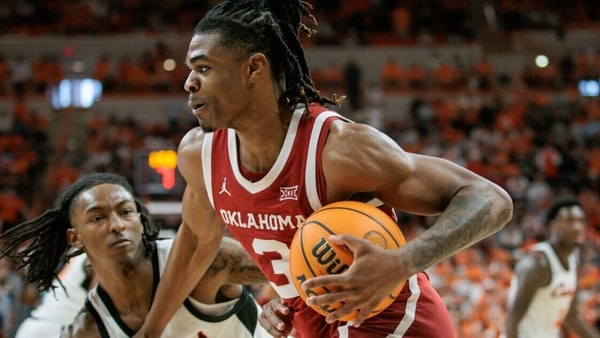
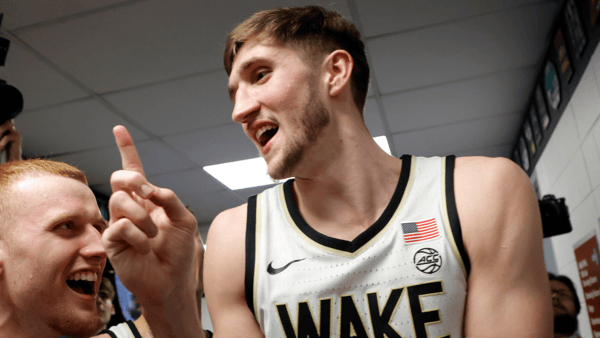
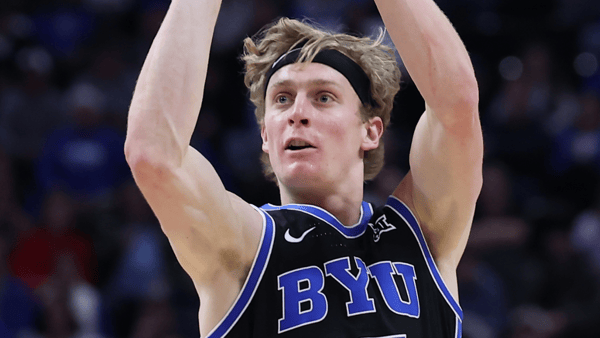
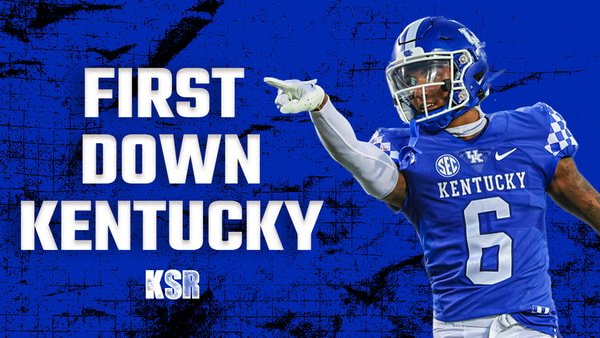
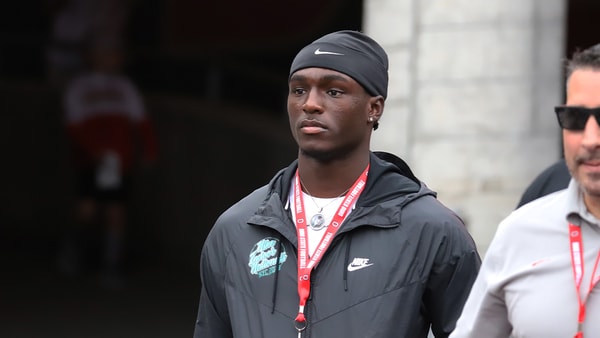
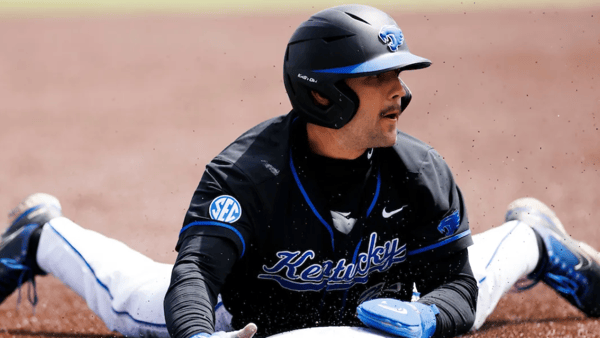
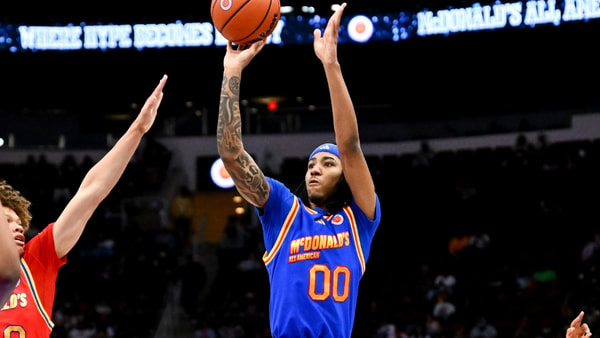
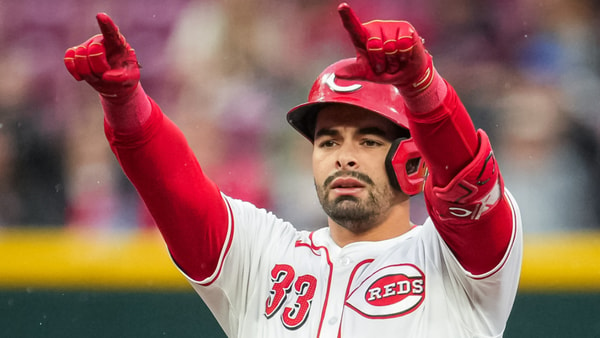
Discuss This Article
Comments have moved.
Join the conversation and talk about this article and all things Kentucky Sports in the new KSR Message Board.
KSBoard